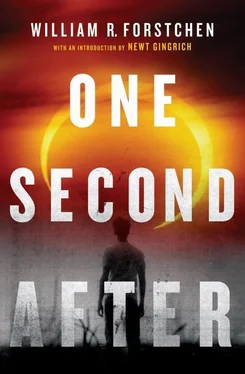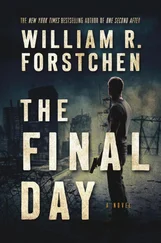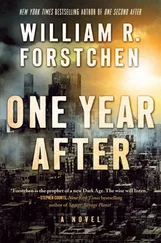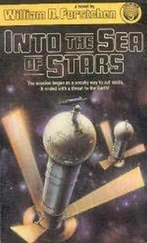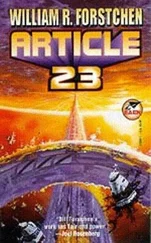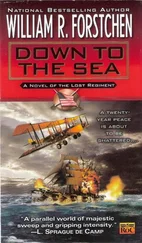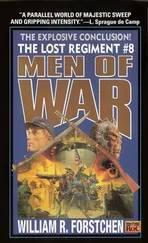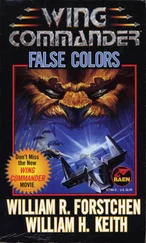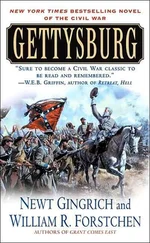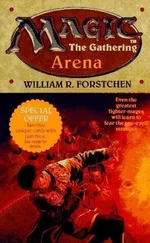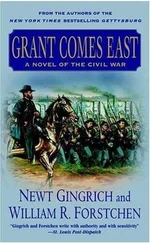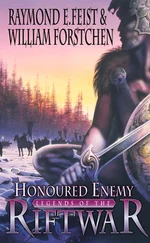Electromagnetic Pulse: A Bolt from the Gray
by Capt. Bill Sanders, USN
The fall of the Berlin Wall and collapse of the Soviet Union marked a distinct turning point in my navy career. The Boeing E-6 strategic nuclear command and control aircraft I flew would no longer fly continuous airborne alert postured for a “bolt from the blue” nuclear attack. I continue to hope that if military anthropologists ever decide to study pre—Cold War hunter-gatherer groups, my rather unspectacular career will be noted for only two significant statistics: no aircraft lost and no nuclear holocaust on my watch.
Growing up in Los Alamos, New Mexico, I was captivated by the subject of nuclear war and somehow it became my career path. I leapt at the chance to tour the Nevada Test Site as an ensign. As I took in the images of a nuclear ghost town and the enormous crater left by the SEDAN event, measuring nearly a quarter of a mile across and deeper than a football field, the tremendous destructiveness of nuclear weapons became real for me. I would devote much of my life to balancing the day-to-day duties of standing ready to fight a strategic nuclear war with the angst of the anticipated aftermath—devouring all I could on the subject.
I read Pat Frank’s classic apocalyptic 1959 novel Alas, Babylon and was encouraged by man’s defiance of annihilation and ability to cope in a post-attack nuclear world. The image of Slim Pickens as Major T. J. “King” Kong in Dr. Strangelove provided dark comic relief every time I inventoried a double-locked safe of nuclear codes. After being promoted to captain, I reread Nevil Shute’s classic, On the Beach, and wondered if I had the courage of the submarine captain Dwight Towers to gracefully face the end of civilization.
I wish my imagination would have allowed me to just sit back and enjoy my friend Bill Forstchen’s novel One Second After as another science fiction story but I could not. It was an emotional and gut-wrenching read—because it could actually happen.
An Electromagnetic Pulse (EPM) [1] Bill Keller, “Nuclear Nightmares,” New York Times Magazine, May 26, 2002. From an interview with General Eugene Habiger, USAF (ret.), on nuclear terrorism scenarios.
explosion over the continental United States would have devastating consequences for our country. The detonation of a nuclear weapon produces high-energy gamma radiation that travels radially away from the burst center. When the detonation occurs at high altitudes—greater than twenty-five miles—the gamma rays directed towards the earth encounter the atmosphere where they interact with air molecules to produce positive ions and recoil electrons called Compton electrons after the physicist who was awarded the Nobel Prize in 1927 for his discovery of the Compton Effect. The gamma radiation interacting with the air molecules produces charge separation as the Compton recoil electrons are ejected and leave behind the more massive, positive ions. The earth’s magnetic field’s interaction with the Compton recoil electrons causes charge acceleration, which further radiates an electromagnetic field as an instantaneous electromagnetic pulse. [2] Gary L. Smith, Testimony Statement, U.S. House of Representatives, Subcommittee on Military Research and Development, July 16, 1997.
Additionally, a high-altitude nuclear burst also produces a relatively slow magnetohydrodynarnic EMP, whose effects are like those from geomagnetic solar storm disturbances causing the flow of very low frequency current into the earth and into long transmission lines. The reality of the damage to electrical and electronic equipment by EMP has been established in various nuclear tests and by the use of EMP simulators. [3] Samuel Glasstone and Philip J. Dolan (eds.), The Effects of Nuclear Weapons (Third Edition), United States Department of Defense and the Energy Research and Development Administration, 1977, p. 522.
The intense and invisible energy pulse cannot be sensed by people and doesn’t damage the human body. Unlike a lightning strike, an EMP explosion is both much faster in producing damaging power surges and much broader and far-reaching in causing simultaneous burnout and failure of electrical and electronic systems over a large area. A well-designed nuclear weapon detonated at a high altitude over Kansas could have damaging effects over virtually all of the continental United States. Our technologically oriented society and its heavy dependence on advanced electronics systems could be brought to its knees with cascading failures of our critical infrastructure. Our vulnerability increases daily as our use and dependence on electronics continues to accelerate.
As former Speaker Newt Gingrich describes the potential catastrophic consequences of an EMP attack over the United States, he notes that “this is not idle speculation but taken from the consensus findings of nine distinguished American scientists who authored the Report of the Commission to Assess the Threat to the United States from Electromagnetic Pulse (EMP) Attack.” [4] Newt Gingrich, Testimony Statement, U.S. Senate, Committee on Homeland Security and Governmental Affairs, November 15, 2005.
Unfortunately, the Report of the Commission to Assess the Threat to the United States from Electromagnetic Pulse (EMP) Attach [5] Report of the Commission to Assess the Threat to the United States from Electromagnetic Pulse (EMP) Attack, Volume I, Executive Report 2004, available at http://empcommission.org .
was released the exact same day the 9/11 Commission’s report directed most of America’s immediate attention to the rearview mirror to find out why we failed to prevent the horrific terrorist attack of 2001. As television commentators pored over the 9/11 report and offered in-depth analysis of the “failure of imagination,” the stark warnings and recommendations of the EMP commission went largely unnoticed into the back-logged pile of congressional failures of implementation.
So why are we reluctant to realistically address the threat of an EMP attack? Skeptics will continue to regurgitate bureaucratic babble such as “while it is technically feasible, it is highly improbable,” or “we do not have any credible intelligence indications and we must remain focused on near-term concerns” and other canned responses of downplayed threat perceptions prevalent prior to 9/11.
Fortunately, while there is no clear objective method for analyzing relative risks and costs for comparing large-scale disasters, there is a high value to preventing, preparing for, and being able to recover from large-scale disasters such as hurricanes, floods, and regional power outages. The thorough work of the EMP commission provides a clear look at the nature of the problem, mitigation strategies and recommendations. The solution “is feasible and well within [our] means and resources to accomplish.” [6] Ibid., 3.
One of the EMP commissioners, Dr. Lowell Wood, noted nuclear physicist involved with EMP weapons for three decades, characterizes an EMP event as a “continental time machine that would move us back to the nineteenth century.” When questioned that the technology of a century ago could not support our present population, he unemotionally replied, “Yes, I know. The population will shrink until it [can] be supported by the technology.” [7] Lowell Wood, Testimony, U.S. House of Representatives, Committee on Armed Services, July 22, 2004.
Farming expertise, horses, and mules would be in short supply. As EMP weapons do not distinguish between military and civilian targets, it is especially critical that our electrical power infrastructure be hardened against EMP.
Читать дальше
